Between ingenuity and the analytic ability there exists a difference far greater, indeed, than that between the fancy and the imagination, but of a character very strictly analogous. It will be found, in fact, that the ingenious are always fanciful, and the truly imaginative never otherwise than analytic.
Edgar Allan Poe
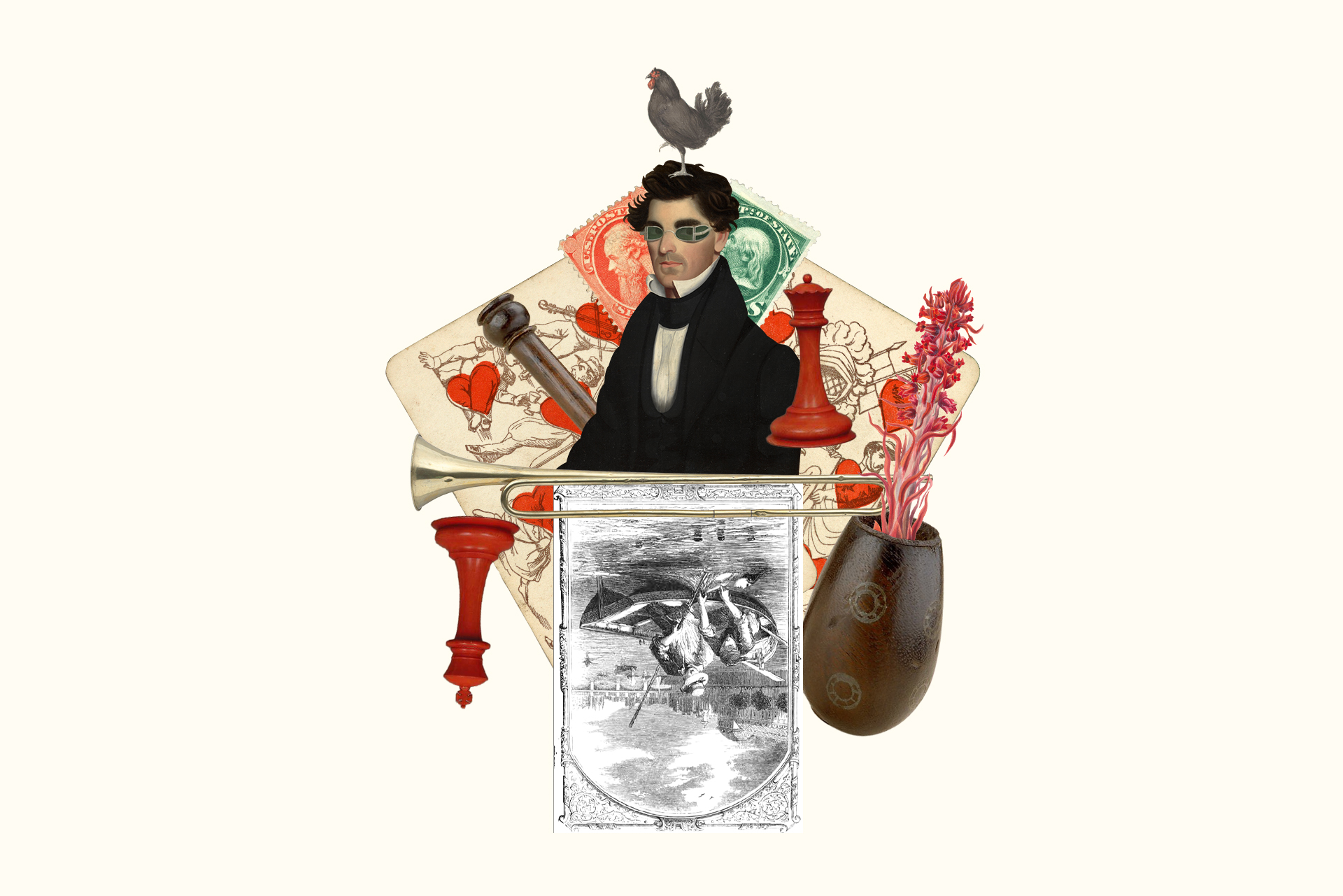
The Dupin Trilogy
Edgar Allan Poe
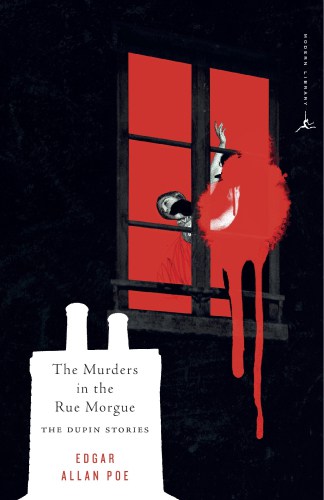
Any edition that has these stories should be fine. Here is an edition that has some extra material in it about the history of detective fiction ISBN: 978-0679643425
"The Murders in the Rue Morgue"...
…serves as an introduction to Monsieur C. Auguste Dupin. The text opens with a discussion on the superiority of the mental virtue of analysis, as opposed to mere calculation or ingenuity. It goes on to claim that while the game of chess is commonly thought of as a game suited to the development of the intellect, it merely exercises the faculty of calculation, while the card game of whist (similar to bridge), involving not just memory, but psychology, requiring one to put oneself in the mind of one’s opponent, is the game suitable to the development of the analytic faculty. All that follows, it is claimed, is a commentary on these thoughts.
In "The Mystery of Marie Rogêt",...
…Poe takes the contemporary real-life unsolved murder of Mary Rogers, from New York, and recasts it in Paris, using Dupin to try to solve the case based solely on newspaper articles covering the event. It opens with a commentary on how a series of coincidences can cause even the most sober thinker to entertain supernatural explanations, and that this tendency of thought is only suppressed by knowledge of probability theory. The text closes with Dupin suggesting a solution, and Poe abruptly ending the narrative in the persona of the editors of the magazine, excising the final portion of the text. Poe next explains that even though the stories of Marie Rogêt and Mary Rogers have been parallel up to that point in the text, any further similarities must not be supposed, because small variations in the two series of events can and will lead to great discrepancies in their consequences as time unfolds. He then bizarrely proceeds to deny the gambler’s fallacy and says that “it forms one of an infinite series of mistakes which arise in the path of Reason through her propensity for seeking truth in detail.”
Finally, in "The Purloined Letter",...
…probably the most famous of the three stories, Dupin helps the Prefect G—— find a letter stolen by Minister D——. Prefect G—— has conducted a thorough search of Minister D——‘s hotel, but cannot discover the letter. Dupin suggests that there is nothing wrong with Prefect G——‘s search, and that the failing lies in his thinking being either too shallow or too deep.
Why This Text is Transformative?
With the Dupin trilogy, Edgar Allan Poe single-handedly invented the detective story as a genre of fiction.
With the Dupin trilogy, Edgar Allan Poe single-handedly invented the detective story as a genre of fiction. Anyone interested in this type of fiction and its history will have reason to experience these stories. As well as being detective stories that are about Dupin’s ability to analyze, resolve, and disentangle, they are just as much about engaging the reader’s ability to do the same with the text itself. Each of these stories is itself a mystery, inviting the reader to do their own investigation and analysis. In addition, Poe’s brilliant writing and mastery of the English language are enough to please and exercise even the most experienced reader.
A Focused Selection
Study Questions
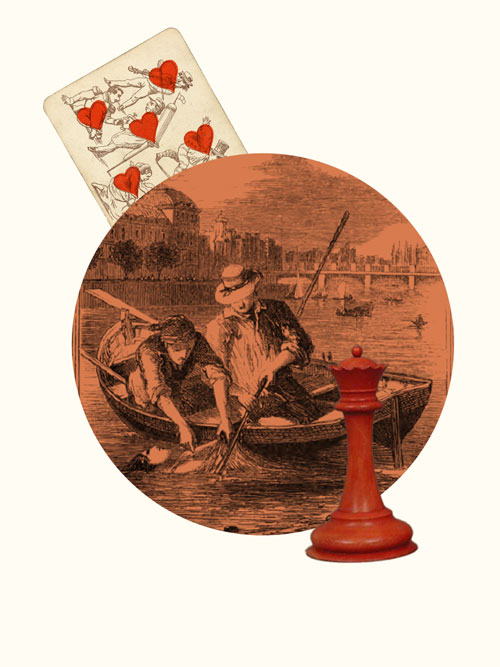
1) What is the French word for “a (metal) nail”? Why do you think Poe did this in connection with The Murders in the Rue Morgue.
2) At the end of The Mystery of Marie Rogêt, Poe claims that a principle of probability theory known as the gambler’s fallacy is itself false (the gambler’s fallacy is the false belief that the probability of an event in a series can be influenced by the history of that series of events, so that for instance, a string of ten heads on a fair coin flip makes it less likely that the next flip will be heads). He does not give proof for this claim. The principle of charity in interpretation requires that we assume our author is at least as aware and astute as we are. How are we to read this claim at the end of the text? What are the limits of the principle of charity and how do we know when we have reached them? Recall that at the beginning of the text, Poe warns us that a series of coincidences can often strike the soberest of thinkers into believing in the supernatural. In what way is the mistake in the gambler’s fallacy doing just this?
3) At the end of The Purloined Letter, Dupin says that he has no pity for D—— because “He is that monstrum horrendum [horrible monster], an unprincipled man of genius.” Reflect upon Dupin’s own motivations for his investigations across the three stories. In what way is Dupin not “an unprincipled man of genius”? Recall that Poe warns us in The Murders in the Rue Morgue: “Let it not be supposed, from what I have just said, that I am detailing any mystery, or penning any romance. What I have described in the Frenchman, was merely the result of an excited, or perhaps of a diseased intelligence.” How are these stories not romances?
4) Think of some other detective/investigator archetypes you know of from movies and literature. How are they borrowing from Dupin? How are they advancing the archetype from Dupin?
Building Bridges
A Recommended Pairing
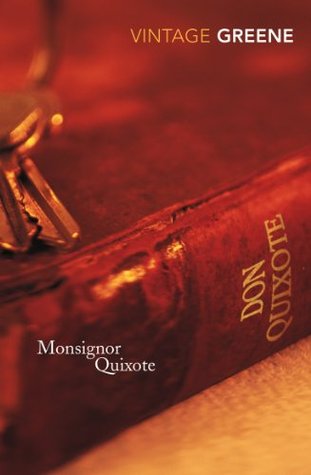
A wonderful short novel by Graham Greene, Monseigneur Quixote, recasts Cervantes’ magnum opus in a way that captures much of the humor and pathos in a more modern context, as the adventures of a Roman Catholic priest and a communist mayor taking to the road together in Spain during the Franco years. The richly imagined characters and their conversations make it clear that the issues that drive Don Quixote’s idealistic quest are not raised only in books of chivalry. How do we live with a commitment to the ideals of a religious faith or a political ideology which, though noble, may not fit easily with and may have unfortunate consequences in the unforgiving world in which we find ourselves? What difference does friendship make in our lives?
Supplemental Resources
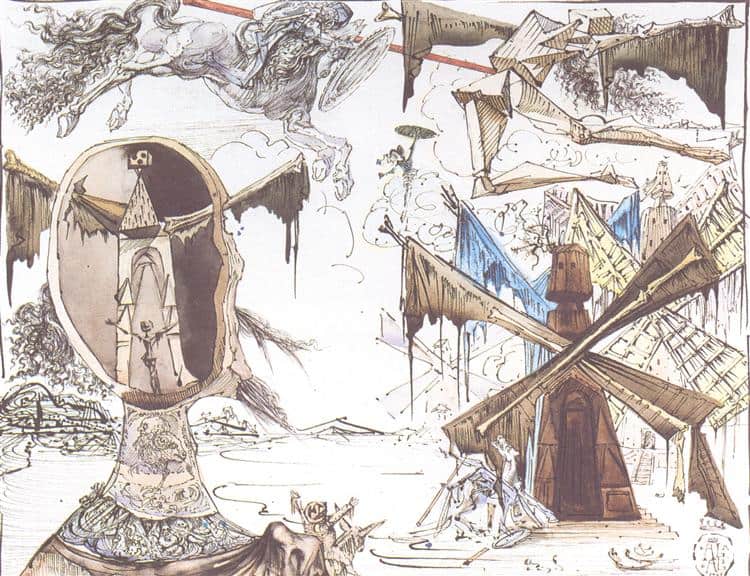
Don Quixote and the Windmills, 1945 - Salvador Dali - WikiArt.org
Don Quixote has been an inspiration for many visual artists. Spanish surrealist Salvador Dali returned to the novel multiple times throughout his long career, creating sketches, paintings, and sculptures of Don Quixote and Sancho, depicting important episodes in the book. A pairing of an episode with one of Dali’s works can lead to a stimulating discussion.
What details do students notice? What do his artistic choices suggest about his interpretation of the characters? To the extent that students are familiar with the story of Don Quixote, it is likely to be as it is filtered through the musical The Man of La Mancha. The musical has its own merits, and is framed by the interesting device of placing Cervantes on stage as a narrator, but of course it is impossible for it to capture much of the complexity of the book – and it alters the ending dramatically. Students may find it interesting to compare the two endings.
Text Mapping
Discipline Mapping
English/Composition Studies
Humanities
Psychology
Page Contributor


